Search Results
Showing results 1 to 20 of 45
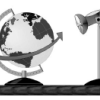
The Geophysical Light/Dark Cycle
Source Institutions
This is an activity (located on page 131 of the PDF) related to sleep and circadian rhythms as well as space travel.
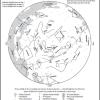
Where Are the Distant Worlds? Star Maps
Source Institutions
This fun hands-on astronomy activity lets learners use star maps (included) to find constellations and to identify stars with extrasolar planets (Northern Hemisphere only, naked eye).
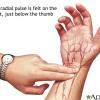
The Pulse of Gravity
Source Institutions
In this astronomy activity (page 3 of the PDF), learners will examine the effects of gravity on a person’s pulse and explore how gravity can differ from planet to planet.

Solar Structures
Source Institutions
In this activity, learners explore how the power of the sun can be harnessed to heat and cool a building.

Delta, Delta, Delta
Source Institutions
In this experiment, learners construct an equilateral triangle using graph paper, a pencil, protractor and ruler. They also make a "laser triangle" using a laser pointer and front-silvered mirrors.

Crash Landing!
Source Institutions
In this activity, groups cut out and sort cards showing items recovered from a crash landing on the Moon. The 12 items range from food and water to rope and matches to a self-inflating life raft.

Cook Food Using the Sun
Source Institutions
Learners build a solar oven from a cardboard pizza box, aluminum foil and plastic. Learners can use their oven to cook S'mores or other food in the sun.
Pósteres Sobre el Espacio y Matemáticas
Source Institutions
Exponga estos pósteres en el salón o déjelos donde los chicos los puedan explorar. Los chicos buscan las respuestas en línea, en libros de consulta, y en calendarios y almanaques.
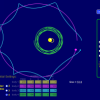
My Solar System
Source Institutions
In this online activity, learners build their own system of heavenly bodies and watch the gravitational ballet.
Finding the Right Crater
Source Institutions
This quick demonstration (on page 11 of PDF) allows learners to understand why scientists think water ice could remain frozen in always-dark craters at the poles of the Moon.
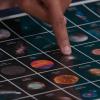
Exploring the Universe: Space Guess Quest
Source Institutions
Space Guess Quest is a fun game that encourages participants to identify the many types of objects in space, from human-made spacecraft to nebulas, galaxies, stars, and worlds.
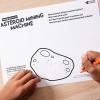
Exploring the Solar System: Asteroid Mining
Source Institutions
In this activity, learners will imagine the challenges and opportunities of asteroid mining.
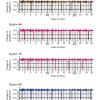
Transit Tracks
Source Institutions
In this space science activity, learners explore transits and the conditions when a transit may be seen.

Using Solar Energy
Source Institutions
In this activity, learners discover how solar energy can be used to heat water.
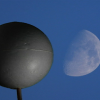
Why Does the Moon Have Phases?
Source Institutions
In this activity, learners use a simple 3D model to discover why the Moon has phases.
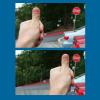
Experiencing Parallax With Your Thumb
Source Institutions
In this activity, learners investigate parallax, a method used to measure distances to stars and planets in the solar system.

Why is the Sky Blue?
Source Institutions
In this activity, learners use a flashlight, a glass of water, and some milk to examine why the sky is blue and sunsets are red.
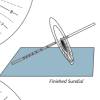
Equatorial Sundial
Source Institutions
In this activity, learners make an equatorial sundial, which is simple to construct and teaches fundamental astronomical concepts. Learners use the provided template and a straw to build the sundial.
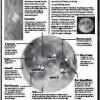
Observing the Moon
Source Institutions
Use this Moon Map Guide to help learners identify features on the Moon, while looking through a telescope.

Weight in Space
Source Institutions
In this activity, learners are challenged to calculate their own weight on various planets using a scale and calculator. Older learners may be challenged to do so without using calculators.
